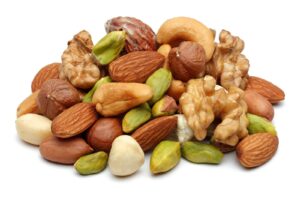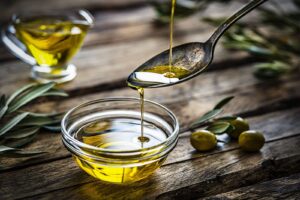To maintain a healthy liver, incorporating specific foods into your diet can be beneficial. Here’s an elaboration on each of the recommended food
Coffee

coffee consumption has been extensively studied about liver health, and the evidence suggests several benefits. The key findings include:
- Protection Against Cirrhosis: Studies have shown that regular consumption of coffee can reduce the risk of cirrhosis, a condition characterized by irreversible liver damage. The risk reduction is significant, especially among individuals with chronic liver disease.
- Reduction in Liver Cancer Risk: Coffee intake has also been associated with a decreased risk of developing certain types of liver cancer. This protective effect extends to various liver conditions, including fibrosis, hepatitis B and C, and non-alcohol-related fatty liver disease.
- Lower Risk of Death from Liver Disease: Consuming coffee, particularly at least three cups per day, has been linked to a lower risk of death among individuals with chronic liver disease. This benefit may be attributed to coffee’s ability to prevent fat and collagen buildup, key markers of liver disease.
- Antioxidant Effects: Coffee contains antioxidants, such as glutathione, which help neutralize harmful free radicals in the body. By reducing oxidative stress, coffee may mitigate liver damage and inflammation.
- Dose-Dependent Relationship: The benefits of coffee on liver health appear to be dose-dependent, with higher consumption associated with greater risk reduction. However, the optimal amount falls within a range of 1 to 4 cups per day.
- Caffeine and Other Chemicals: The protective effects of coffee are attributed to its caffeine content and other bioactive compounds. These substances may inhibit scar tissue growth, combat cancer, and suppress viral replication in conditions like hepatitis B.
It’s important to highlight that moderation is key when it comes to coffee consumption for liver health. While moderate coffee intake has been associated with various benefits, excessive consumption may not offer additional advantages and could potentially lead to adverse effects, especially in certain individuals with pre-existing health conditions. Therefore, it’s essential to strike a balance and consult with a healthcare professional regarding individual dietary choices and their impact on liver health.
Oatmeal

Oatmeal is indeed a nutritious choice for promoting liver health, primarily due to its high fiber content, particularly beta-glucans. Here are some key points to consider regarding oatmeal and its benefits for liver health:
- Fiber Content: Oatmeal is rich in dietary fiber, which is essential for maintaining healthy digestion and supporting liver function. Fiber aids in the removal of toxins and waste products from the body, preventing them from accumulating in the liver.
- Beta-Glucans: Oats contain beta-glucans, a type of soluble fiber that has been associated with various health benefits, including reduced cholesterol levels and improved blood sugar control. Animal studies suggest that beta-glucans may also help reduce fat accumulation in the liver, potentially protecting against liver disease.
- Need for Clinical Studies: While animal studies show promising results regarding the benefits of beta-glucans in oats for liver health, more clinical research is needed to confirm these effects in humans. Nonetheless, incorporating oatmeal into a balanced diet can still be advantageous for overall health.
- Choosing the Right Type: It’s recommended to opt for whole oats or steel-cut oats over instant oatmeal varieties, as they typically contain fewer added sugars and fillers. Choosing minimally processed oatmeal ensures that you’re getting the maximum nutritional benefits without unnecessary additives.
- Balanced Diet: Incorporating oatmeal into your diet as part of a balanced eating pattern is key for promoting liver health. Pairing oatmeal with other nutrient-rich foods such as fruits, vegetables, nuts, and healthy proteins can further support overall liver function and well-being.
While specific quantities of oatmeal for optimal liver health are not explicitly defined, regularly including oatmeal as part of a varied and nutritious diet can contribute to overall liver health. As with any dietary changes, it’s important to consider individual dietary preferences, and health conditions, and consult with a healthcare professional for personalized advice.
Green Tea

Green tea has been recognized for its potential benefits in promoting liver health, primarily attributed to its rich content of catechins, potent antioxidants. Here are the key points regarding green tea and its effects on liver health:
- Antioxidant Properties: Green tea contains catechins, particularly epigallocatechin gallate (EGCG), which are potent antioxidants. These compounds help reduce oxidative stress and inflammation in the liver, thereby protecting it from damage.
- Reduction in Liver Disease Risk: Studies, including meta-analyses, have indicated that regular consumption of green tea is associated with a decreased risk of liver disease. This protective effect is thought to be mediated by the catechins in green tea, which can regulate lipid metabolism and prevent fat accumulation in the liver.
- Regulation of Lipid Metabolism: Green tea has been shown to regulate lipid metabolism, which is crucial for preventing fatty liver disease and related conditions. By promoting the breakdown and excretion of fats, green tea may help reduce the risk of liver diseases.
- Recommended Intake: Drinking two to three cups of green tea per day is often recommended to obtain its potential benefits for liver health. This moderate consumption level allows individuals to reap the antioxidant and anti-inflammatory effects of green tea without excessive intake, which could pose risks.
- Caution with Concentrated Forms: While green tea is generally considered safe when consumed in moderate amounts as a beverage, caution should be exercised with concentrated forms such as extracts or supplements. High concentrations of green tea extracts may contain excessive levels of catechins, which could potentially lead to adverse effects, including liver problems. It’s important to consult with a healthcare professional before using green tea supplements, especially if you have existing liver conditions or are taking medications.
Garlic

Garlic possesses potential benefits for liver health, primarily attributed to its sulfur-containing compounds, particularly organosulfur compounds like allicin. Here are the key points regarding garlic and its effects on liver health:
- Activation of Liver Enzymes: Garlic has been shown to activate liver enzymes responsible for detoxification, aiding in the elimination of toxins from the body. This mechanism helps support overall liver function and health.
- Improvement in Fatty Liver Disease: Clinical trials have demonstrated that garlic supplementation, particularly in the form of garlic powder, can improve hepatic steatosis (fatty liver) and liver enzyme levels in patients with nonalcoholic fatty liver disease (NAFLD). These effects were observed independently of weight loss or changes in diet and physical activity.
- Antioxidant and Anti-inflammatory Activities: Garlic’s beneficial effects on the liver are attributed to its organosulfur compounds, which possess antioxidant and anti-inflammatory properties. These compounds help protect liver cells from oxidative stress and inflammation, contributing to liver health.
- Optimal Quantity: While the specific quantity of garlic for optimal liver health is not clearly defined, studies have indicated benefits from garlic powder supplementation at doses of 800 mg per day for 15 weeks in individuals with NAFLD. However, incorporating raw garlic into the diet may also confer benefits, as indicated by its inverse association with liver cancer risk.
- Raw Garlic Consumption and Liver Cancer: Epidemiological studies have suggested that regular consumption of raw garlic is inversely associated with the risk of liver cancer. Eating raw garlic two or more times per week has been linked to a reduced risk of developing liver cancer.
In conclusion, garlic offers various potential benefits for liver health, including the activation of detoxifying enzymes, improvement in fatty liver disease, and protection against liver cancer. While specific dosage recommendations may vary, incorporating garlic into the diet, either in raw form or as a supplement, can be a valuable addition to a liver-supportive lifestyle. As always, individual dietary choices should be made in consultation with a healthcare provider, especially for those with specific health conditions or concerns.
Berries

Dark berries, including blueberries, raspberries, and cranberries, are rich in polyphenol antioxidants, which have been associated with potential benefits for liver health. Here are the key points regarding the effects of dark berries on the liver:
- Antioxidant Properties: Polyphenols found in dark berries possess potent antioxidant properties, helping to neutralize harmful free radicals in the body. By reducing oxidative stress, these antioxidants may protect liver cells from damage and inflammation.
- Animal Studies: Several animal studies have investigated the effects of berry polyphenols on liver health, showing promising results. These studies suggest that consumption of dark berries may help prevent liver damage and improve liver function.
- Human Research Needed: While animal studies provide valuable insights, further research is necessary to determine the specific effects of berry polyphenols on the liver in humans. Clinical trials are needed to evaluate the potential benefits of dark berries for liver health and to establish optimal dosage recommendations.
- Regular Consumption: While the specific quantity of dark berries for optimal liver health is not defined, incorporating these berries into your diet on a regular basis can provide a source of beneficial antioxidants. Including a variety of dark berries as part of a balanced and varied nutritional plan can contribute to supporting overall liver health.
- Moderation and Variety: As with any dietary component, moderation and variety are key. While dark berries offer potential benefits for liver health, it’s important to consume them as part of a well-rounded diet that includes a variety of nutrient-rich foods.
In conclusion, dark berries, such as blueberries, raspberries, and cranberries, are rich in polyphenol antioxidants, which may help protect the liver from damage. While further research is needed to fully understand their effects on liver health in humans, including dark berries as part of a balanced diet can be a beneficial dietary choice to support overall liver health and well-being.
Grapes

Grapes, particularly their seeds, are rich in antioxidants and may offer health benefits, including lowering inflammation and preventing liver damage. Consuming whole, seeded grapes or grape seed extract supplements can be a simple way to add these compounds to your diet
A 2020 studyTrusted Source in rats suggests that grapes and grape juice can have various benefits, though it’s unclear whether the results of animal studies mean the same in humans.
Benefits may include:
- lowering inflammation
- preventing cell damage
- increasing antioxidant levels
Yet, a 2022 study suggests that eating grape products doesn’t significantly affect liver enzymes and may not help improve liver function.
More studies are needed before taking grapeseed extract to promote liver health can be recommended.
Cruciferous Vegetables

Broccoli, Brussels sprouts, and other cruciferous vegetables are rich in beneficial plant compounds that support liver health. Here are the key points regarding the effects of these vegetables on the liver:
- Enhanced Detoxification Processes: Cruciferous vegetables contain compounds such as glucosinolates, which are known to enhance the liver’s natural detoxification processes. These compounds support the liver in breaking down toxins and promoting their elimination from the body.
- Protection Against Liver Disease: Consumption of cruciferous vegetables has been associated with a reduced risk of liver disease. The plant compounds found in these vegetables possess antioxidant and anti-inflammatory properties, which help protect liver cells from damage and inflammation.
- Clinical Studies: While the specific quantity of cruciferous vegetables for optimal liver health is not precisely defined, clinical studies have demonstrated benefits with moderate to high consumption. For example, studies have shown benefits with approximately five to ten servings of vegetables per day, with a focus on including cruciferous vegetables like broccoli and Brussels sprouts.
- Specific Amounts: Some studies have investigated the effects of specific amounts of individual cruciferous vegetables on liver health. For instance, research has suggested benefits with daily consumption of 250 grams of Brussels sprouts and broccoli. Additionally, watercress, another cruciferous vegetable, has been studied, with benefits observed with the consumption of 2 ounces taken thrice daily.
- Incorporating Into Diet: Incorporating cruciferous vegetables like broccoli, Brussels sprouts, cauliflower, kale, and cabbage into your daily diet can be a practical way to support liver health. These vegetables can be enjoyed in various dishes, including salads, stir-fries, soups, and side dishes.
In conclusion, cruciferous vegetables are valuable additions to a liver-supportive diet due to their rich content of beneficial plant compounds. While the specific quantity for optimal liver health may vary, including a variety of cruciferous vegetables in your diet on a regular basis can contribute to supporting liver function and overall well-being. As always, dietary choices should be made as part of a balanced and varied nutritional plan, tailored to individual preferences and health goals.
Nuts

Nuts, especially almonds, are good sources of vitamin E, a nutrient that may help protect against fatty liver disease. They also contain healthy fats and antioxidants, contributing to overall liver health
While there is no specific quantity mentioned, it is generally recommended to consume nuts in moderation as part of a balanced diet. A typical serving size for nuts is considered to be around 1 ounce, which is roughly a handful. This amount provides the beneficial nutrients found in nuts without overloading on calories and fats. Therefore, including a moderate amount of nuts, such as almonds, in your diet as part of a balanced and varied nutritional plan may contribute to supporting liver health
Fatty Fish

Fatty fish, such as salmon, are rich in omega-3 fatty acids, which can help reduce inflammation and the risk of heart disease, benefiting liver health. Consuming fatty fish or fish oil supplements may support liver function
A 2016 analysisTrusted Source found that omega-3 fatty acids helped lower liver fat and triglycerides in those with NAFLD or nonalcoholic steatohepatitis.
While consuming omega-3-rich fatty fish appears to be beneficial for your liver, adding more omega-3 fats to your diet is not the only thing to consider.
The ratio of omega-3 fats to omega-6 fats is also important.
Most people exceed the intake recommendations for omega-6 fats, which are found in many plant oils and butter.
An omega-6 to omega-3 ratio that’s too high can promoteTrusted Source the development of liver disease, according to one animal study.
So, in addition to adding more heart-healthy omega-3 fats to your diet, it may also be a good idea to reduce your intake of omega-6 fats that promote inflammation
Olive Oil

Olive oil, a healthy fat, is associated with less fat accumulation in the liver and improved blood flow within the organ. Incorporating olive oil into your diet can support liver health.
Fat accumulation in the liver is part of the first stage of liver disease. That’s why olive oil’s positive effects on liver fat, as well as other aspects of health, make it a valuable part of a healthy diet.
According to a study from 2018 Trusted Source, following a Mediterranean diet rich in olive oil could be associated with a reduced risk of fatty liver in older adults.
Several other studies have found similar effects of olive oil consumption in humans, including less fat accumulationTrusted Source in the liver and improved blood levels of liver enzymes.
Prickly Pear

Prickly pear is known for its benefits against hangover symptoms and may also have positive effects on the liver. However, more research is needed to fully understand its benefits and the appropriate dosage for liver health
In addition to incorporating these foods into your diet, it’s crucial to avoid or limit intake of foods high in saturated fats, trans fats, and refined sugars, as well as to reduce alcohol consumption to support liver health
More Reading
Discover clinically proven, long-lasting hydration with CeraVe Moisturisers. (youtube.com)
10 Foods Good for Liver Repair (youtube.com)
CHARM-retirement.com

